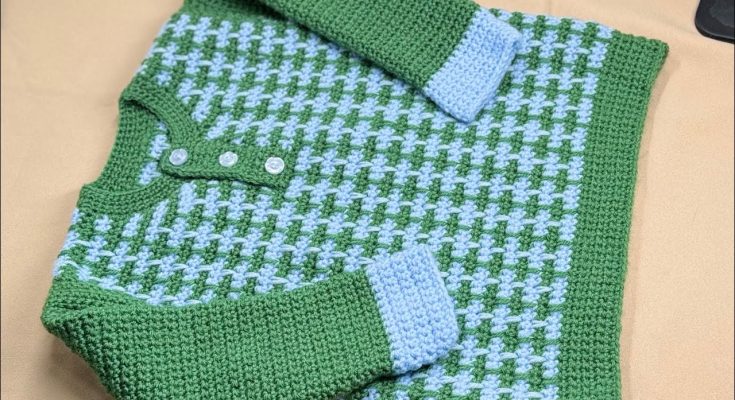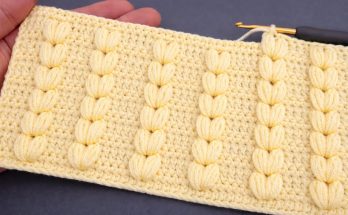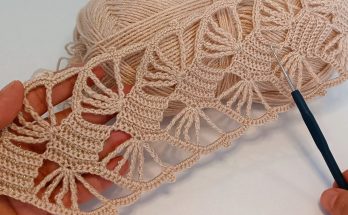A handmade baby sweater is a timeless treasure, a cozy and heartfelt gift that will be cherished for years to come. The “Tiny Explorer” Top-Down Crochet Sweater is a perfect project for any crocheter, featuring a simple, classic design with a touch of whimsy. This pattern uses a basic stitch that is easy to master, allowing you to focus on the beautiful, seamless construction that gives this sweater its unique, charming appeal.
This detailed tutorial will guide you through creating a seamless, top-down baby sweater. It’s an excellent project for a beginner looking to create a beautiful, practical garment or for an experienced crocheter wanting a fast and fun project that results in a beautiful, heirloom-quality sweater.
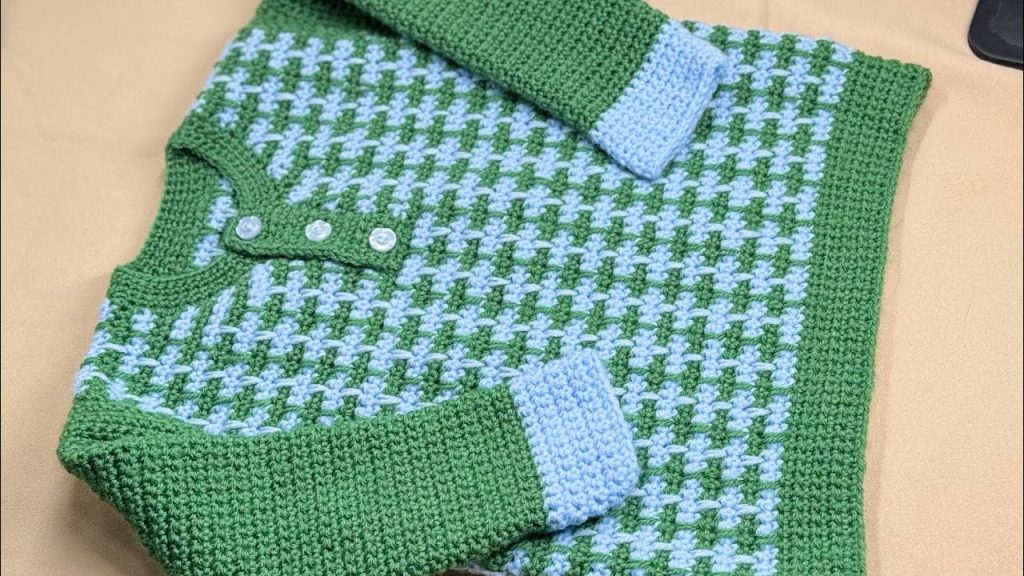
Why Crochet the Tiny Explorer Sweater?
- Top-Down, Seamless Construction: The sweater is worked from the neckline down, which means there is no seaming required! This makes the process faster and the finished garment more comfortable for a baby.
- Classic Raglan Design: The sweater features a timeless raglan shape that is both easy to create and provides a comfortable, stylish fit.
- Simple & Fast: The pattern uses a simple stitch and a large hook, so it works up quickly, which is perfect for a baby who is growing fast!
- Customizable: The pattern is easily adjustable in length and size, so you can create a perfect, custom fit.
- Heartfelt Gift: A handmade sweater is a personal and incredibly thoughtful gift for a new baby.
1. Planning Your Sweater: Size & Materials
- Sizing: This pattern is written for a standard 1-2 Years Old with instructions on how to adjust for a larger size.
- Finished Chest Circumference (approx.): 20-21 inches (51-53 cm).
- To adjust for a larger size, use a larger hook and/or increase the starting chain length.
- Yarn Choice: Choose a yarn that is soft, gentle on a baby’s skin, and machine-washable.
- Fiber: Look for a baby-specific yarn in acrylic, wool, or a soft cotton blend.
- Weight: Worsted Weight (#4) yarn is ideal for this project, as it creates a beautiful, cozy fabric.
- Color: A single, solid color will best highlight the ribbed texture of the stitch.
- Quantity: You will need approximately 200-250 yards (180-230 meters) of yarn.
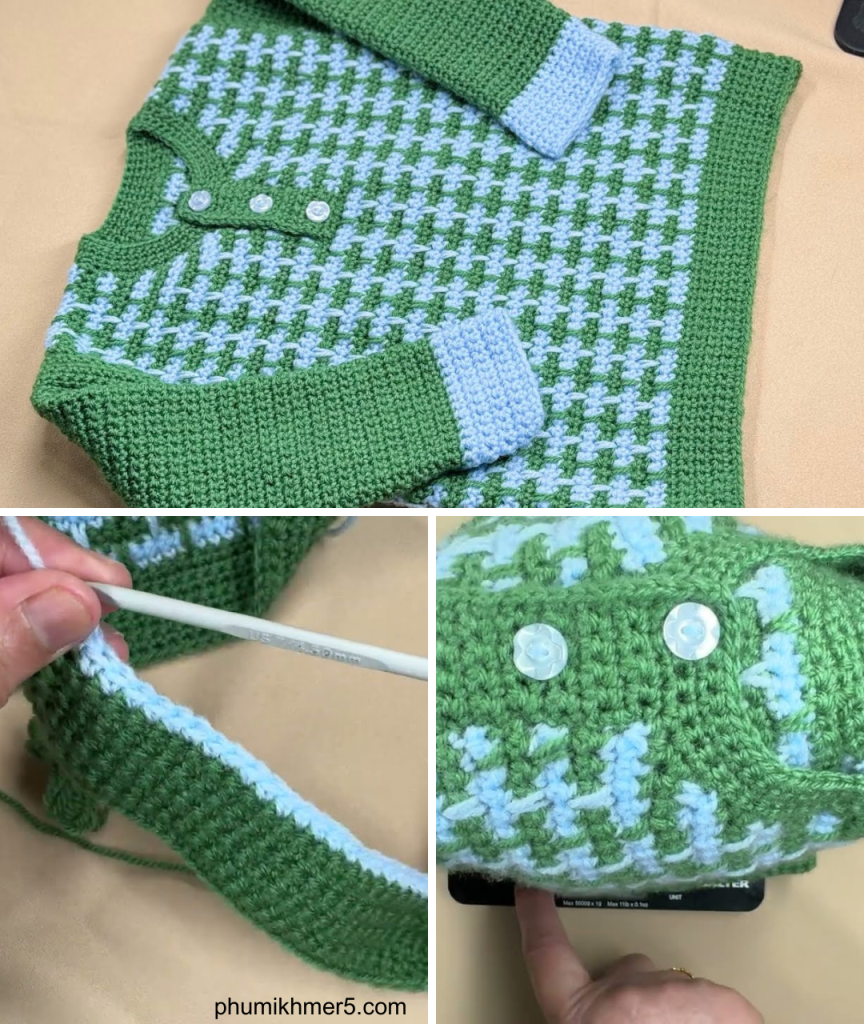
2. Materials You’ll Need
- Yarn: One or two skeins of Worsted Weight (#4) yarn.
- Crochet Hook: 5.0 mm (H-8 US) or a size that gives you a lovely, flexible fabric with your yarn.
- Scissors: For cutting yarn.
- Yarn Needle (Tapestry Needle): For weaving in ends.
- Stitch Markers (Recommended): To mark the four increase points.
- Buttons: Two or three small buttons for the back opening.
3. Essential Crochet Stitches & Techniques
- Slip Knot
- Chain (ch)
- Slip Stitch (sl st): For joining and neatening.
- Half Double Crochet (hdc)
- Half Double Crochet Increase (hdc inc): Work 2 hdc in the same stitch.
- Working in Rows and Rounds: The yoke is worked in rows, and the body and sleeves are worked in rounds.
- Working in Back Loop Only (BLO): This creates a beautiful ribbed texture. You will insert your hook into only the back loop of the stitch, leaving the front loop unworked.
4. Let’s Crochet the Tiny Explorer Sweater!
We will start at the neckline, work the yoke with increases, separate for the body and sleeves, and finish with the cuffs and a button placket.
Part 1: The Yoke (Worked in Rows)
This forms the top, raglan-style part of the sweater.
- Foundation Chain: Ch 60.
- Row 1: Hdc in the 2nd ch from hook and in each ch across. Ch 1, turn.
- [59 hdc]
- Row 2 (Increase Row): Work 2 hdc in the first stitch, 8 hdc, place stitch marker. Work 2 hdc, 12 hdc, place stitch marker. Work 2 hdc, 16 hdc, place stitch marker. Work 2 hdc, 12 hdc, place stitch marker. Work 2 hdc, 8 hdc, 2 hdc in the last stitch. Ch 1, turn.
- The increase stitches create the raglan shape. You should have 4 stitch markers marking the increase points.
- Rows 3-8: Hdc in each stitch, and work 2 hdc in each of the marked stitches. Ch 1, turn.
- Continue working this increase row until the yoke is large enough to fit around the baby’s chest and arms.
- The piece should be a flat rectangle that is getting wider with each row.
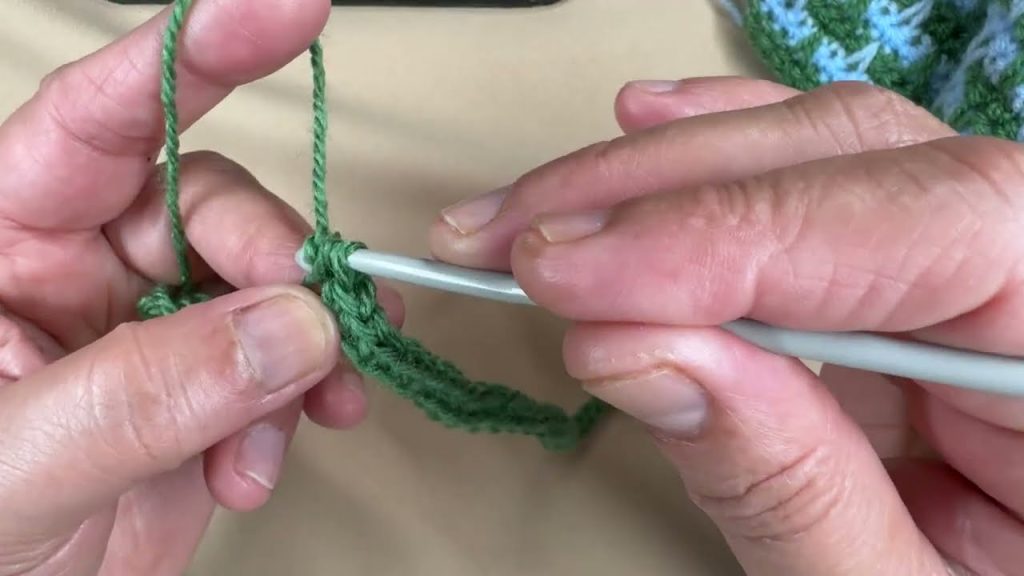
Part 2: Separating for the Body & Sleeves
This step divides the piece into the front, back, and two sleeves.
- Row 9: Hdc in each stitch until you reach the first stitch marker (front panel). Ch 3.
- Skip all stitches until you reach the next stitch marker (the first sleeve).
- Hdc in each stitch between the next two stitch markers (the back panel). Ch 3.
- Skip all stitches until you reach the last stitch marker (the second sleeve).
- Hdc in each stitch until the end of the row (the second front panel).
- You now have the body of the sweater separated from the sleeves.
- Join with a sl st to the first hdc of the row to work in the round for the body.
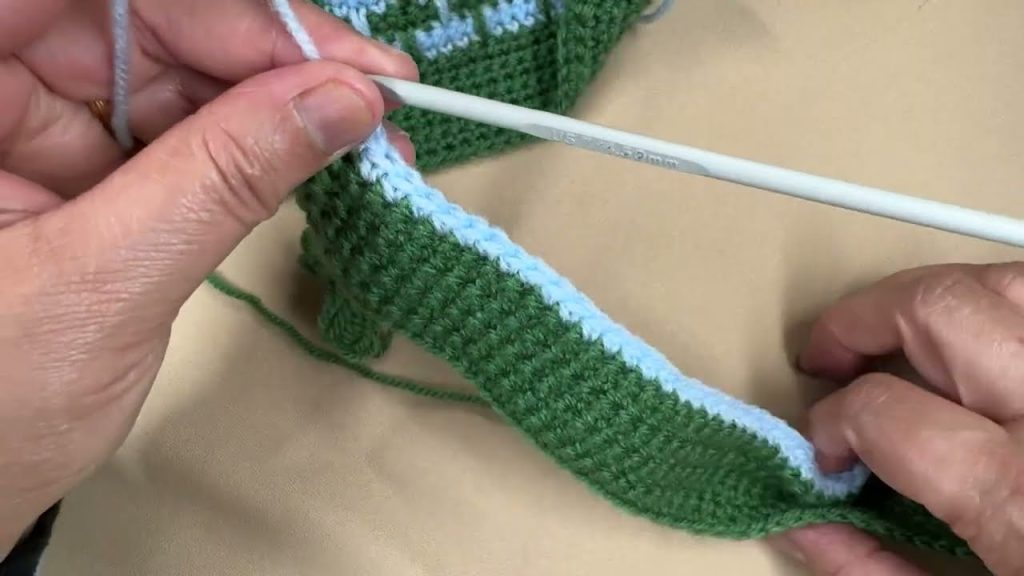
Part 3: The Body (Worked in Rounds)
- Round 10: Ch 1 (does not count as a stitch). Hdc in each hdc and in each of the ch 3 stitches. Join with a sl st to the first hdc of the round.
- Rounds 11-15 (Ribbing): Ch 1. Hdc in the back loop only (BLO) of each stitch around. Join with a sl st.
- Continue working in rounds until the body of the sweater reaches your desired length.
- Fasten off and weave in all ends.
Part 4: The Sleeves (Worked in Rounds)
- Rejoin your yarn to the armpit of one of the armholes.
- Round 1: Ch 1 (does not count as a stitch). Hdc in each stitch around the armhole. Join with a sl st to the first hdc of the round.
- Rounds 2-8 (Ribbing): Ch 1. Hdc in the back loop only (BLO) of each stitch around. Join with a sl st.
- Continue working in rounds until the sleeve reaches your desired length.
- Fasten off and repeat for the second sleeve.
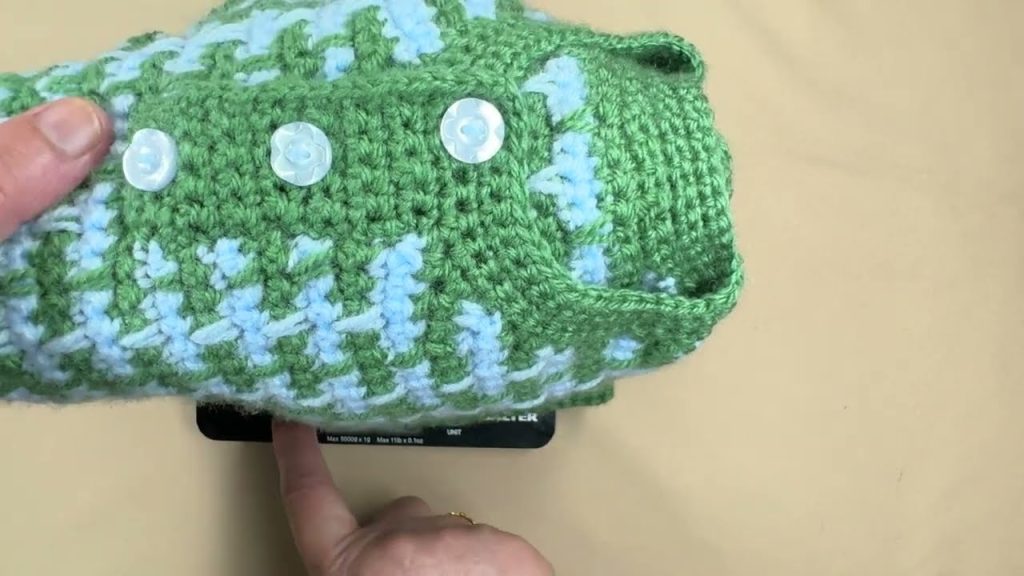
Part 5: The Button Placket
- Rejoin yarn at the top of the back opening.
- Row 1: Sc evenly down the edge of the opening. Ch 1, turn.
- Row 2 (Buttonholes): Sc in the first few stitches, ch 2, skip 2 stitches. Repeat for as many buttonholes as you need. Sc to the end of the row. Ch 1, turn.
- Row 3: Sc in each stitch and in each ch space. Fasten off.
- Sew on your buttons to match the buttonholes.

Enjoy creating your beautiful, handmade “Tiny Explorer” Sweater. It’s a labor of love that will be a perfect addition to any baby’s wardrobe!
Video tutorial:
